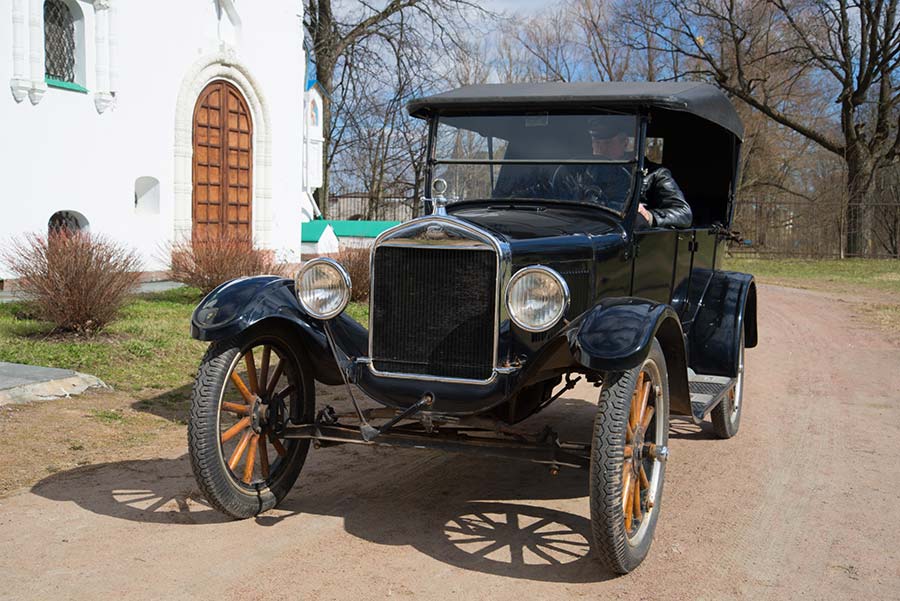By Mike McGough
When the “war to end all wars” ended, he hadn’t fired a shot. He enlisted for service in World War I shortly after war was declared by the United States in April 1917. Like all soldiers in the American Expeditionary Forces under General “Black Jack” Pershing, he was a dough boy. There are several explanations for this nickname, but regardless of why it stuck, it was a really fitting moniker for him. After basic training, he was assigned to the Quartermaster Corps as a baker.
During his two-plus years of service, the flour, lard, yeast, sugar, and salt he helped turn into bread would have been measured in tons. Along the way, this 18-year-old kid from Ligonier, Pennsylvania grew up quickly. Life in a war zone taught him that initial perceptions can be faulty, and that just about anything can go from bad to better or good to worse over time. That lesson was one of two things he brought home with him; the other was a promise.
After the war, he worked in the mills in nearby Pittsburgh as a laborer. By 1928, he had enough money saved to follow through on the promise he’d made himself during the war. He wanted to open a bakery. He and his wife rented a small storefront. It had room for a kitchen, some storage, and display cases in the front. In April 1929 they opened. At the end of a dismal first month, his wife was concerned. She said, “We’re ruined, this was a horrible idea.”
With way less concern than she had, he said, “We’ll see.”
By the end of June, business picked up. They had some regular customers, and the list was growing. By August, they were off and running. Business was so good that in September, they bought a used Model T truck and hired a driver to make deliveries. They made a down payment and agreed to purchase the building rather than continuing to rent. At the end of a particularly good day the first week of October, she commented, “Our timing was right. This is wonderful, we’re set.”
He smiled and said, “We’ll see.”
The stock market crashed three weeks later, and the Great Depression was on. 1930 was a panicky year, as unemployment numbers grew daily. When they had to lay their driver off and sell the truck, she said, “This is awful; we’ll soon be unemployed too!”
“We’ll see,” was his only response.
On his happy-days-are-here-again promise, Roosevelt won the White House by a landslide in 1932. Hope was in the air, and they bought into it. At that time she said, “I think this’ll turn around quickly; we’re going to be okay.”
Again, he said, “We’ll see!”
With federal government assistance, bread lines and soup kitchens opened in Pittsburgh and most major cities. Large commercial baking companies supplied the bread for them. Although fortunate for those in need, it further reduced the demand for bread from local bakeries. By early 1935, they had to close their bakery.
Later that year, he joined the Works Progress Administration (WPA), one of several New Deal-era programs that provided employment for millions of jobless people. The WPA built roads, constructed buildings, and worked on other local, state, and federal projects. Lamenting their situation, she said, “There doesn’t seem to be a way to save the bakery; it’s gone.”
Not surprisingly, he replied, “We’ll see.”
The Civilian Conservation Corps (CCC), was another New-Deal era re-employment program. Men ages 18 to 25 could enroll and be assigned to a residential camp, where projects to improve public lands, recreational areas, and forest lands were carried out. When the last three of the nine camps around Pittsburgh opened up in late 1935, the large regional baking companies couldn’t meet the demand for bread.
In February 1936 a CCC agent contacted the dough boy and his wife. He offered to secure their store mortgage, provide restart funds, and purchase all the bread they could produce. As the number of residents in camps around Pittsburgh grew, that same agent returned. He offered to install two more ovens, back the owners to buy a truck, and help them hire a driver to deliver bread to the camps every other day.
Elated, his wife embraced the news, but this time instead of offering a snap judgment, she said, “It’ll be interesting to see how this works out; we need to wait and see!”
There is much to be said for this dough boy’s wisdom. What appears to be a lucky break today, can turn into tomorrow’s challenge, and what looks like a bad break today can be tomorrow’s golden opportunity. Instead of rushing to judgment, patiently give time a chance to work, it’s oft unpredictable magic! MSN








